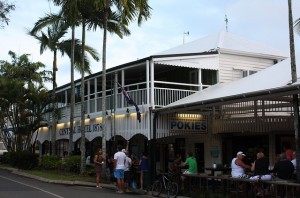
In his recent article in The Atlantic, Joshua Foust acknowledges that the international community excels at disaster relief - at least the kind that comes in the days and weeks following a disaster. The bigger question he poses is how we can support the most important long-term recovery tool needed by disaster-leveled areas: "healthy business environments" that allow for entrepreneurial endeavor. Too often, he argues, the economic infrastructure of local areas hit hard by either man-made or natural disasters tend to stagnate or fail to re-build at all - leaving an area dependent on aid and fertile for violence and strife.
In the article, he explores the complexity of this matter through the lens of several case studies - the Uzbek communities of Osh, Kyrgyzstan, the rural country of Belarus, and the civil-war torn Tajikistan. These examples provide insight into the challenges and successes different communities have had getting back on their feet - including a portryal of how tourism can create a thriving economic industry even in rural areas post-disaster, prompting one business owner to remark "you get people to celebrate and preserve their culture while making money." In the travel industry, we have seen as many examples of destinations succeeding in this (Rwanda, Indonesia, Thailand) as there are those that continue to struggle (Haiti).
Foust expands:
[The] real problem in international development is teaching people how to run businesses. The training for how to conform to modern accounting standards is necessary, but most people really are natural entrepreneurs. They can find opportunities in their communities far better than any international group can, and they know how to make decisions and choices for those businesses better than a visiting expatriate consultant... [The] private sector is absolutely vital to any plan for economic growth... What we really need is a method for getting the government out of the way--taking the brakes off people's natural drive to prosper economically.
Read the entire article for a more detailed look at this topic. AdventureTravelNews would love our readers' input, given their experience working in many of these locations both prior to and after disasters occur. What are best-practices examples of countries who have succeeded in this? What unique conditions exist in those who have not? Where does the adventure travel industry have a responsibility in this problem and are we meeting it?
